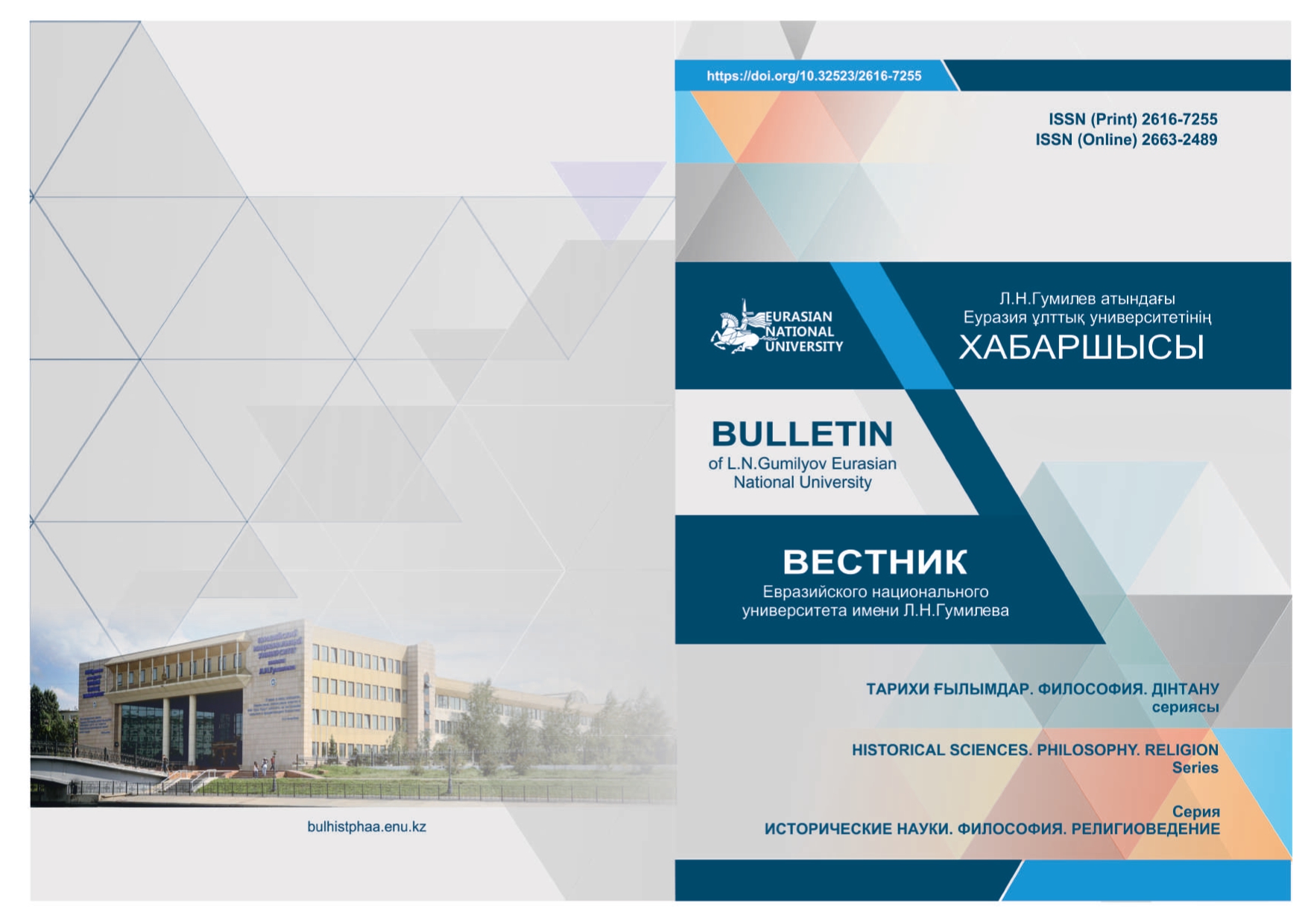Transformation of humanistic principles: the potential of nonviolent practices
Views: 254 / PDF downloads: 203
DOI:
https://doi.org/10.32523/2616-7255-2023-144-3-244-256Keywords:
transformation of society, principles of nonviolence, pacifism, peace, war, pragmatic approach, development.Abstract
In the contemporary world, locally in the Kazakh space, the issues of transformation of society and the search for a new trajectory of development are increasingly being raised across the globe. Immence interest in the transformation of almost all community groups expands the discursive field, going beyond the political and ideological concepts. Qualitative transformation of society presupposes, first of all, a conscious transformation of the ideological attitudes of the individuals themselves. This article is a review where the author examines discourses about the potential of non-violent practices in transforming society. The main directions within which the potential of non-violent practices can be fruitfully applied are highlighted in it. The reflection is implied both by social institutions and on the part of individuals in all directions. Despite the fact that the basic principles of the philosophy of non-violence were laid down in ancient times, in the last century there has been a qualitative transition from the theoretical to the practical level. That is, the potential of non-violence can actually be used to overcome contradictions. It becomes more obvious that non-violence is not an abstract position itself, but can serve as an effective tool in specific social relationships. In turn, it influences how to consider and use the potential of non-violent practices in transforming the functioning of public institutions. The article analyzes modern researches of western scholars through the prism of the possibility of using non-violent practices in the transformation of modern Kazakh society
Downloads

Downloads
Published
How to Cite
Issue
Section
License
Copyright (c) 2023 Tolganaу V. Mustafina

This work is licensed under a Creative Commons Attribution-NonCommercial 4.0 International License.







